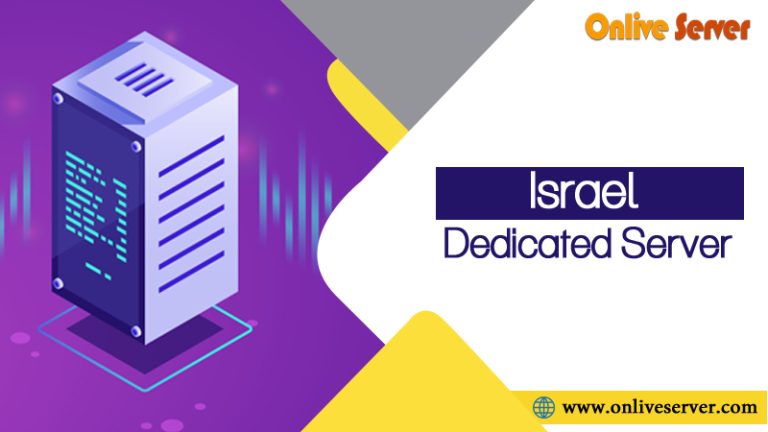In the realm of web hosting, a Dedicated Server stands out as a robust and versatile solution. It provides unparalleled control, security, and customization options for businesses and individuals with demanding hosting needs. Unlike shared hosting, where multiple users share resources on a single server. A Linux Dedicated Server is an entire server dedicated solely to one user. This article aims to explore the ins and outs of Linux Dedicated Server, from the basic setup to advanced optimization techniques.
Understanding the Basics of Operating System
At the heart of every Dedicated Server lies the Linux operating system. Linux is an open-source, Unix-like operating system renowned for its stability, security, and flexibility. In this section, we will delve into the fundamental concepts of Linux. How it differs from other operating systems, making it a preferred choice for dedicated hosting.
Advantages of Using a Dedicated Server
A Dedicated Server comes with a myriad of benefits. From complete control over server resources to the ability to customize software and security settings. Linux offers a world of possibilities. We will explore these advantages in detail, highlighting why businesses often choose Best Dedicated Server over other hosting options.
Choosing the Right Hardware for Your Dedicated Server
Selecting the appropriate hardware is crucial for maximizing the performance of your Best Dedicated Server. In this section, we will discuss the essential hardware components you should consider, including CPU, RAM, storage, and bandwidth, to ensure smooth and reliable server operations.
Setting Up a Dedicated Server
Setting up a buy Dedicated Server requires technical expertise, but it doesn’t have to be an overwhelming task. Here, we will provide a step-by-step guide to assist you in the initial server setup, including operating system installation, remote access configuration, and essential software installations.
Configuring Security and Firewall on Dedicated Server
Security is of paramount importance for any server, and a cheap Dedicated Server is no exception. We will walk you through the process of securing your server with robust firewall configurations, software updates, and best practices to safeguard your data and keep potential threats at bay.
Managing and Maintaining a Dedicated Server
Once your Dedicated Server is up and running, it requires regular maintenance to ensure optimal performance. From monitoring system resources to managing user accounts and services, effective server management is essential. In this section, we will explore the key aspects of server maintenance and how to streamline the process.
Optimizing Performance on Your Dedicated Server
Achieving peak performance on a Dedicated Server involves fine-tuning various aspects of the system. We will delve into performance optimization techniques, such as caching, load balancing, and web server optimization, to deliver a blazing-fast experience to your website visitors.
Troubleshooting Common Issues on a Dedicated Server
In the world of server administration, challenges may arise. In this section, we will discuss common issues that cheap Dedicated Server users encounter and provide troubleshooting tips to tackle them effectively.
Backing Up and Restoring Data on a Dedicated Server
Data loss can be catastrophic for any website or business. Implementing a comprehensive backup strategy is vital to protect your valuable data. We will guide you through setting up regular backups and how to restore your data in case of an emergency.
Migrating from Shared Hosting to a Dedicated Server
As your website or application grows, you might outgrow shared hosting and need to upgrade to a buy Linux Dedicated Server. We will explain the migration process, including transferring files, databases, and configurations, without causing significant disruptions to your services.
Comparison Between Dedicated Servers and Other Hosting Options
To make an informed decision, it’s essential to compare best Dedicated Server with other hosting alternatives. We will provide a comparative analysis of dedicated hosting. Shared hosting, and cloud hosting to help you select the best-fit option for your specific requirements.
Scaling and Upgrading Your Dedicated Server
As your business expands, you may need to scale up your server resources or upgrade to more powerful hardware. This section will explore the different scaling and upgrading possibilities to accommodate the growth of your online presence.
Best Practices for Running Applications on a Dedicated Server
Running applications efficiently on your Dedicated Server requires optimization and adherence to best practices. We will share insights on managing databases, choosing suitable programming languages. And optimizing application code to ensure smooth operation and excellent user experience.
Conclusion
Germany Server Host empowers users with unparalleled control, performance, and security for their web hosting needs. By understanding the basics of Germany Dedicated Server, configuring security measures, and optimizing performance. You can fully leverage the capabilities of this powerful hosting solution.
FAQs
1. What is a Linux Dedicated Server?
A Dedicated Server is a hosting solution where an entire server is dedicated to a single user, providing enhanced control and performance compared to shared hosting.
2. Why choose a Linux Dedicated Server over other hosting options?
Dedicated Servers offer complete customization, security, and control, making them ideal for businesses with specific hosting requirements.
3. Is technical expertise required to set up and manage a Linux Dedicated Server?
Yes, setting up and managing a Dedicated Server demands technical knowledge, but various tutorials and guides are available to assist you.
4. Can I upgrade my Linux Dedicated Server as my website grows?
Yes, you can easily scale up your server resources or upgrade to more powerful hardware to accommodate your growing online presence.
5. How can I ensure the security of my Linux Dedicated Server?
Implementing robust firewall configurations, regularly updating software, and following best security practices are essential for securing your server.







